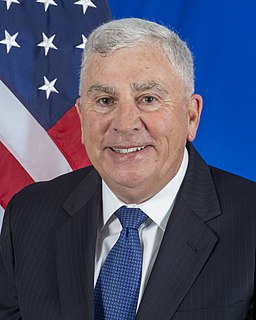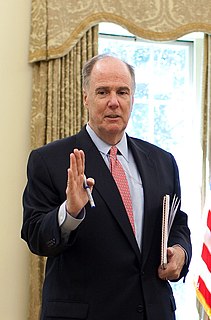A Quote by Dean Acheson
The defensive perimeter [of the United States in East Asia] runs along the Aleutians to Japan and then goes to the Ryukyus.
Related Quotes
There may be countries [where] there's no gender inequality in schooling, even in higher education, but [where there is] gender inequality in high business. Japan is a very good example of that. You might find cases in the United States where at one level women's equality has progressed tremendously. You don't have the kind of problem of higher women's mortality as you see in South Asia, North Africa, and East Asia, China, too, and yet for American women there are some fields in which equality hasn't yet come.
Take Germany and Japan, both defeated in the Second World War. Germany has acknowledged its monstrous crimes to a certain extent, has paid reparations and so on. Japan, in contrast, apologizes for nothing and has paid no reparations, with one exception: It pays reparations to the United States, but not to Asia.
The election of Shinzo Abe as the leader of Japan's ruling Liberal Democratic party and now prime minister will have profound repercussions for Japan and East Asia. Most western commentary during the premiership of Junichiro Koizumi has been concerned with the extent to which Japan has allowed a freer rein to market forces.
Over the past eight years, the United States has worked hard to deepen partnerships across the region and across South-east Asia in particular. We're now a part of the East Asia Summit and we have a strategic partnership with Asean. At the US-Asean Leaders Summit I hosted earlier this year in Sunnylands, California, we agreed to a set of principles that will shape the future peace and prosperity of the region, from promoting innovation and furthering economic integration to addressing transnational challenges like global health security and climate change.
The vast Pacific Ocean has ample space for China and the United States. We welcome a constructive role by the United States in promoting peace, stability and prosperity in the region. We also hope that the United States will fully respect and accommodate the major interests and legitimate concerns of Asia-Pacific countries.
The United States has kept the peace through our alliances. Donald Trump wants to tear up our alliances. I think it makes the world safer and, frankly, it makes the United States safer. I would work with our allies in Asia, in Europe, in the Middle East, and elsewhere. That's the only way we're going to be able to keep the peace.
There are many reasons that universities in East Asia have not reached the positions that they had hoped for. After all, we must remember that modern East Asia did not begin with Confucius. In fact the experience of modern education in East Asia is relatively short and granted that time scale, many universities are doing fine.












































